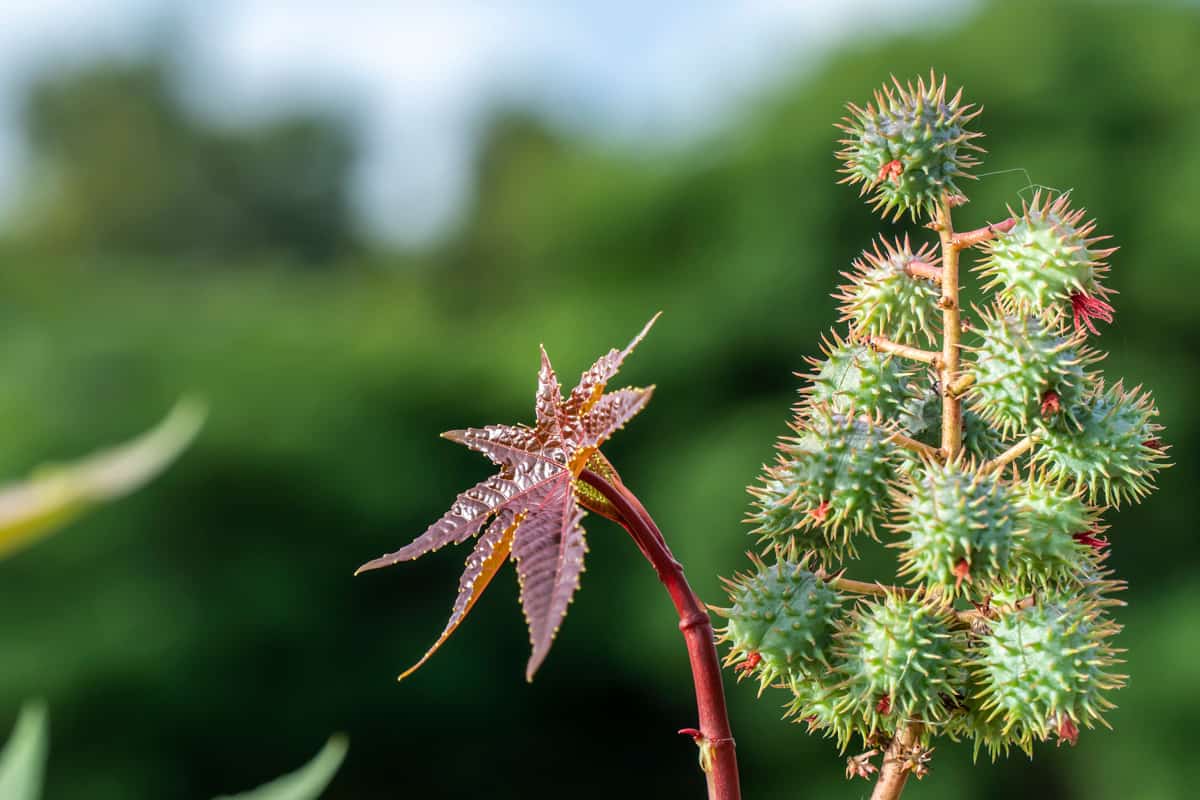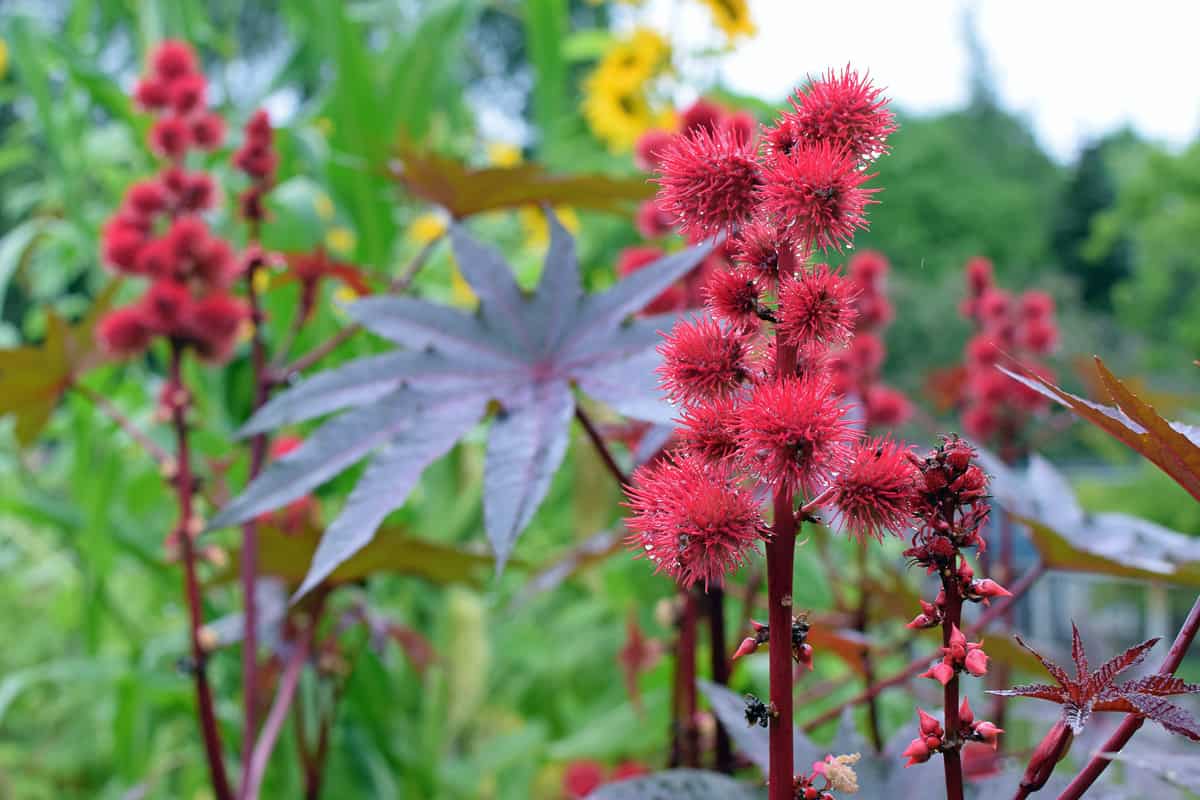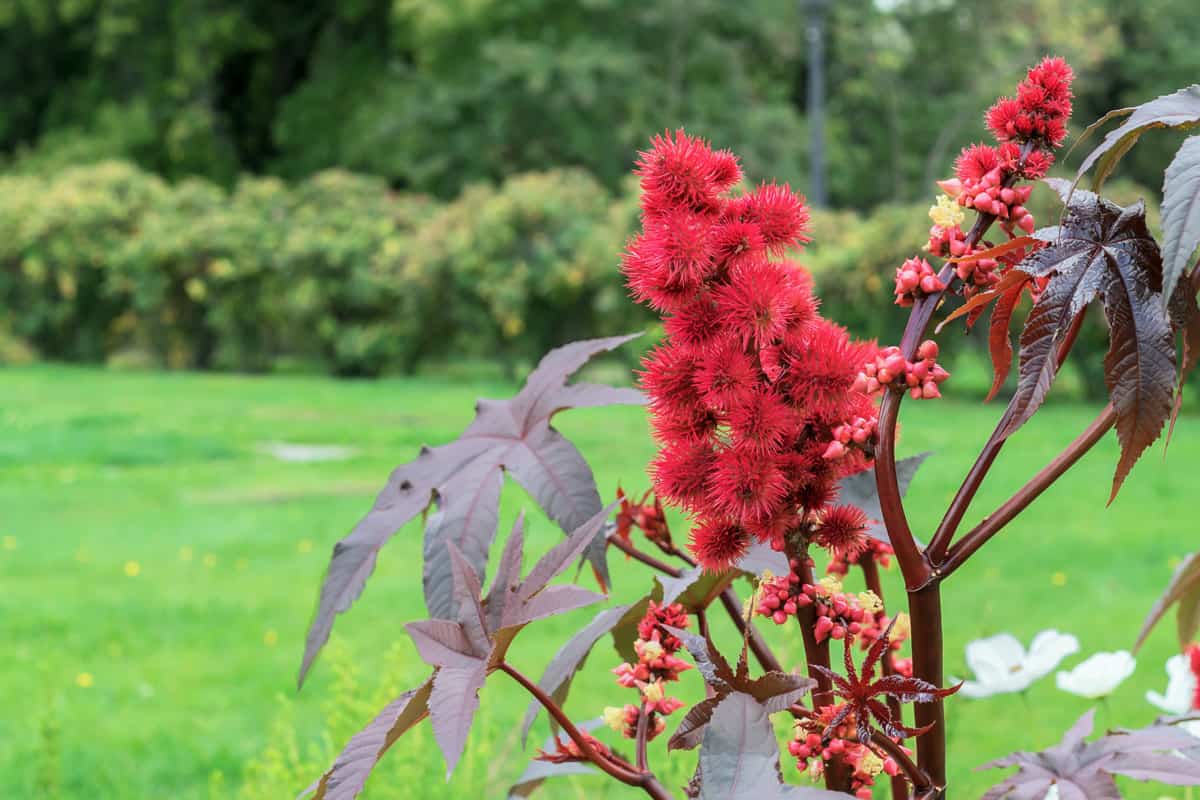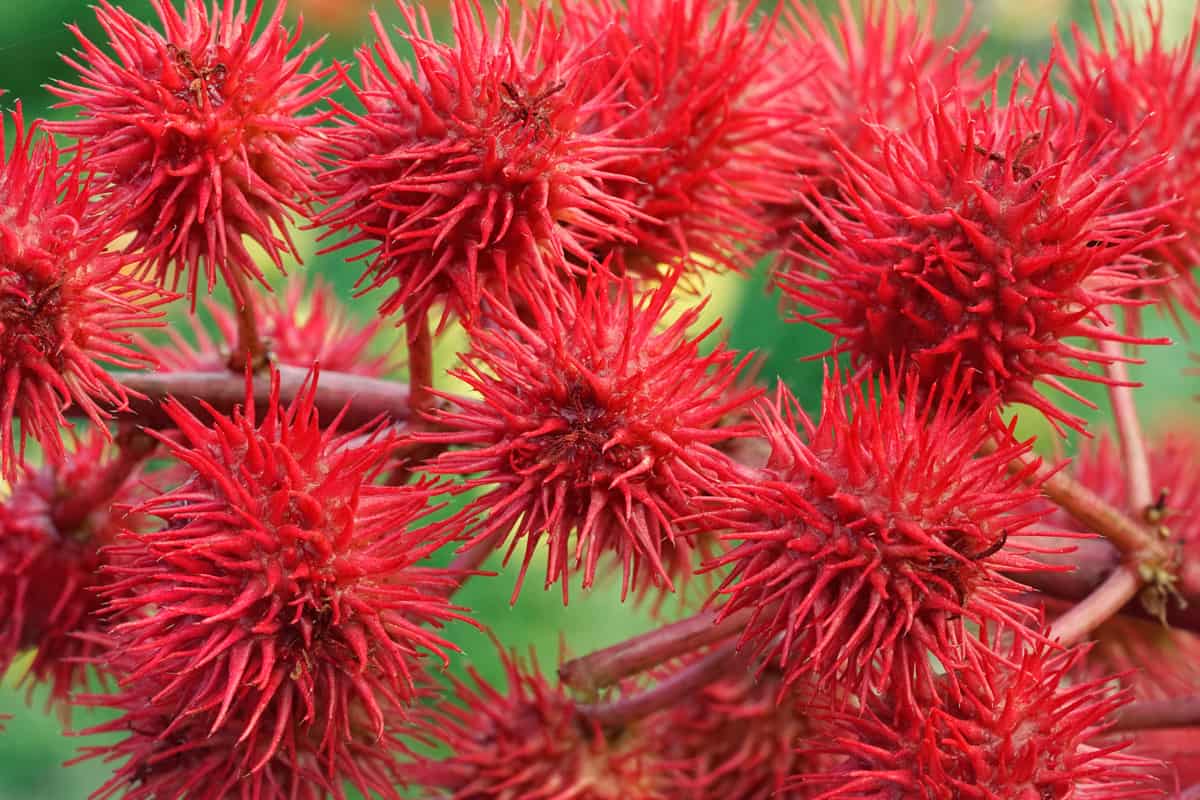Gardening is a beloved hobby for many people around the world. But sometimes, nature can be too dangerous for humans, even creating deadly side effects for anyone who gets too close.
Some plants, including the castor bean, should never be grown in a garden. The castor bean, also known as Ricinus communis, is one of the most poisonous plants in the world.

Its seeds contain ricin, a toxic protein that can cause severe injury or even death in humans and animals. The plant is native to Africa but has been introduced to other parts of the world, including the United Kingdom.
A recent account of someone finding these deadly plants in a city's local garden has sparked outcry across the United Kingdom and global news outlets.
One woman in the UK was recently shocked to find many deadly castor oil plants growing in a local park's flowerbed.

She couldn't believe her eyes when she saw the shrubs in Queen Gardens Park, Conwy Bay. Upon further inspection, she realized that they were indeed castor oil plants.
The fact that such a poisonous plant could be planted in a public garden is concerning. The castor bean is not a plant that should be grown in any setting, let alone a public space.
According to an account from the woman's husband, here's what got the ball rolling:
"There was one plant that caught her eye, it was quite exotic looking, and so she asked the gardeners what it was," he told NorthWalesLive.
“They told her it was something called ricinnus and she checked on a plant identification app on her phone. She sent the name to me - Ricinnus Communis."
That's when the two worried residents decided to speak up.
The good Samaritan was worried about other pets and children walking the area, leading her to question why these plants were there and when they could be removed.
Luckily, their efforts did not go to waste, as the Queens Garden staff were able to remove the deadly castor plants swiftly to protect the public.
We're just glad these toxic plants were removed before anyone was harmed.

To offer some insight: the castor bean is often grown for ornamental purposes but can also be used for its oil. Castor oil is a common ingredient in soaps, cosmetics, and some foods.
Here's a video explaining the dangerous effects of ricin (produced by castor bean plants) from the University of Kansas Hospital:
However, it's important to note that the oil is safe for use only when appropriately processed. Raw castor beans and other parts should never be ingested or applied to the skin.
It's not just the seeds of the castor bean that are dangerous. The entire plant is poisonous, including the leaves, stems, and flowers.
The symptoms of ricin poisoning can include nausea, vomiting, diarrhea, seizures, and even death. It only takes one to ten seeds of this plant to cause severe harm to a human being.
So it's understandable why having these poisonous plants in a public park is a bad idea.
According to the Guinness Book of World Records, the castor oil plant is the most poisonous common plant globally. That's a scary thought, especially considering how easily it can be grown.
This plant is often prohibited from being purchased and grown because it can be used as a chemical and biological weapon.
The fact that it was able to be planted in a public garden is a reminder that we need to be more cautious about what we grow in our gardens and what we allow our cities to plant in parks/public spaces.

It's important to note that not all poisonous plants are easy to identify.
Some may look harmless or attractive, but they can still pose a serious risk to humans and animals. It's always better to err on the side of caution and avoid growing potentially dangerous plants altogether.
Since this story broke, the Conwy Council said it would take its usual precautions with the latest batch of Ricinus planted in Colwyn Bay and elsewhere.
A spokesperson for the council mentioned how these plants had been used for municipal gardening throughout the UK for decades, assuring the public they are safe if left alone.
That isn't amazing news for people in the area with pets or younger children: but it's good to know the plants in the area and their potential effects.
Have you ever encountered a castor oil plant? Do you have one in your garden?
Let's keep this conversation going in the comments below!
